
|
  
  
  
  
     
     
|
LAST UPDATE: September 11, 2013 |
| SPECIFICATIONS | PHOTOGRAPHS (Click on the pictures for an enlarged photo) |
 Designation: LCS
Length Freedom: 380 ft
Length Independence: 418 ft
Propulsion Both:
- 2 Rolls-Royce MT30 36MW Gas Turbines LCS-1 Freedom (In Service) To date, six LCS vessels have been commissioned into the US NAvy. Three of each variant. The US Navy will be launching four of these vessels per year over the next several years, and starting in 2017, will be commissioning four per year. The Littoral Combat Ship (LCS) is a frigtae sized surface combatant intended for operations in the littoral areas, closer to shore, and as an escort for higher value vessels. They have been developed to be a networked, agile, stealthy surface combatant capable of defeating anti-access and asymmetric threats in littoral waters. The United States is developing two ship classes to fulfill this role for the U.S. Navy: the Freedom Class, built in MAriette Wisconsin, and the Independence Class built by Austal near Mobile, Alabama. Both LCS designs are slightly smaller than the Navy's Oliver Hazard Perry and earlier guided missile frigates. The LCS design, in addition to the anti-access and asymetrical warfighting roles have added the capabilities of a small assault transport with a flight deck and hangar large enough to base two SH-60 Seahawk helicopters, the capability to recover and launch small boats from a stern ramp, and enough cargo volume and payload to deliver a small assault force with armoured fighting vehicles to a roll-on/roll-off port facility. The standard armament for the LCS includes a Mk 110 57 mm gun, RAM misiles for air defense, and .50 cal machine guns. Significantly more armament is included and tailored to the specific mission packages that the vessels were desinged for. For example, the anti-surface, and fire support package will include two additional automatic 30mm cannons and anti-surface missiles, a vertcal launched Hellfire missile where ewach ship will embark with 24 such missiles when outfitted. In order to meet the various roles envisioned for these vessels, they were desinged to be reconfigure for different roles with quickly replacable "Mission Packages," including anti-submarine warfare, mine countermeasures, anti-surface warfare, intelligence, surveillance and reconnaissance, homeland defense, maritime intercept, special operations, and logistics. Due to its modular design, the LCS will be able to replace slower, more specialized ships such as minesweepers. Currently, both classes of the LCS have completed three vessels which have gone through sea trials and have been commissioned into the fleet. Four more of each class are either launched and outfitting, or under construction. The US Navy awarded Lockheed Martin Corp. (Freedom Class) and Austal USA (Independence Class) each a fixed-price incentive contract for the design and construction of a block buy of 12 total ships each. This will make for a total of 24 littoral combat ships, 12 of each type, authorized in budget .
Uparmament and new Fast Frigates (FF): So the Freedom and Independnece classes would continue, but as FFs. The uparmament would include eight long range surface to surface missiles as standard. These would either be Harpoon missiles, or NAval Strike Missiles, or perhaps the newer LRASM. Both variants would be using the SeaRAM missile defense system, carry two additional 25mm autocannons, torpedo launchers, and more capable sensors, particularly sonar and surface search sensors. The LCS vessels would later be refit at maintenace periods to include the heavier armament and sensors. Modules to further enhance surface warfare, ASW, and anit-mine warfare would continue to be developed for the vessels.
Freedom Class LCS: The flight deck is 1.5 times the size of that of a Burke destroyer, and uses a Trigon traversing system to move helicopters in and out of the hangar. The ship has two ways to launch and recover various mission packages: a stern ramp and a starboard side door near the waterline. The mission module bay has a 3-axis crane for positioning modules or cargo. The fore deck has a modular weapons zone which can be used for a 57 mm gun turret or missile launcher. A Rolling Airframe Missile launcher is mounted above the hangar for short-range defense against aircraft and cruise missiles, and .50-caliber gun mounts are provided topside. After experience with USS Freedom and USS Independence, the core crew will be expanded from 40 to 50 sailors on both ships, usually joined by a mission package crew and an aviation detachment for a total of up to 75. The 1st in class, USS Freedom, was laid down on 2 June 2005, launched and christened on 23 September 2006, delivered to the Navy on 18 September 2008, and commissioned in Milwaukee on 8 November, 2008.
Independence Class LCS: With 11,000 cubic meters of payload volume the ship is designed with enough objective payload and volume to actively use one mission package while carrying a second complete mission package in reserve. The large flight deck is almost three times the size of a standard Burke class destoyer and will support simultaneous operation of two SH-60 helicopters, multiple UAVs, or one large CH-53 class helicopter (which is larger than a V-22 transport). The stable trimaran hull will allow flight operations up to sea state 5. The large interior volume and payload is greater than larger destroyers and is sufficient to serve as a high-speed transport and maneuver platform. The mission bay is 11,800 square feet and takes up most of the deck below the hangar and flight deck. In addition to cargo or container-sized mission modules, the bay can carry four lanes of multiple Strykers, armored Humvees, and their associated troops. An elevator allows air transport of packages the size of a twenty-foot long shipping container that can be moved into the mission bay while at sea. A side access ramp allows for vehicle roll-on/roll-off loading to a dock and allows the ship to even transport the Expeditionary Fighting Vehicle. The Independence also has an integrated LOS Mast, Sea Giraffe 3D Radar and SeaStar Safire FLIR. Side and forward surfaces are angled for reduced radar profile. In addition, H-60 series helicopters provide airlift, rescue, anti-submarine, radar picket and anti-ship capabilities with torpedoes and missiles. The Raytheon Evolved SeaRAM missile defense system is installed on the hangar roof. The SeaRAM combines the sensors of the Phalanx 1B close-in weapon system with an 11-missile launcher for the Rolling Airframe Missile (RAM), creating an autonomous system. There are provisions for a 16 cell MK-41 VLS forward, between the main gun and the deck house. The 1st in class, USS Independence, was laid down on 19 January 2006. She was launched on 29 April 2008, Christened on October 4th, 2008, and commissioned on 16 January 2010. |
      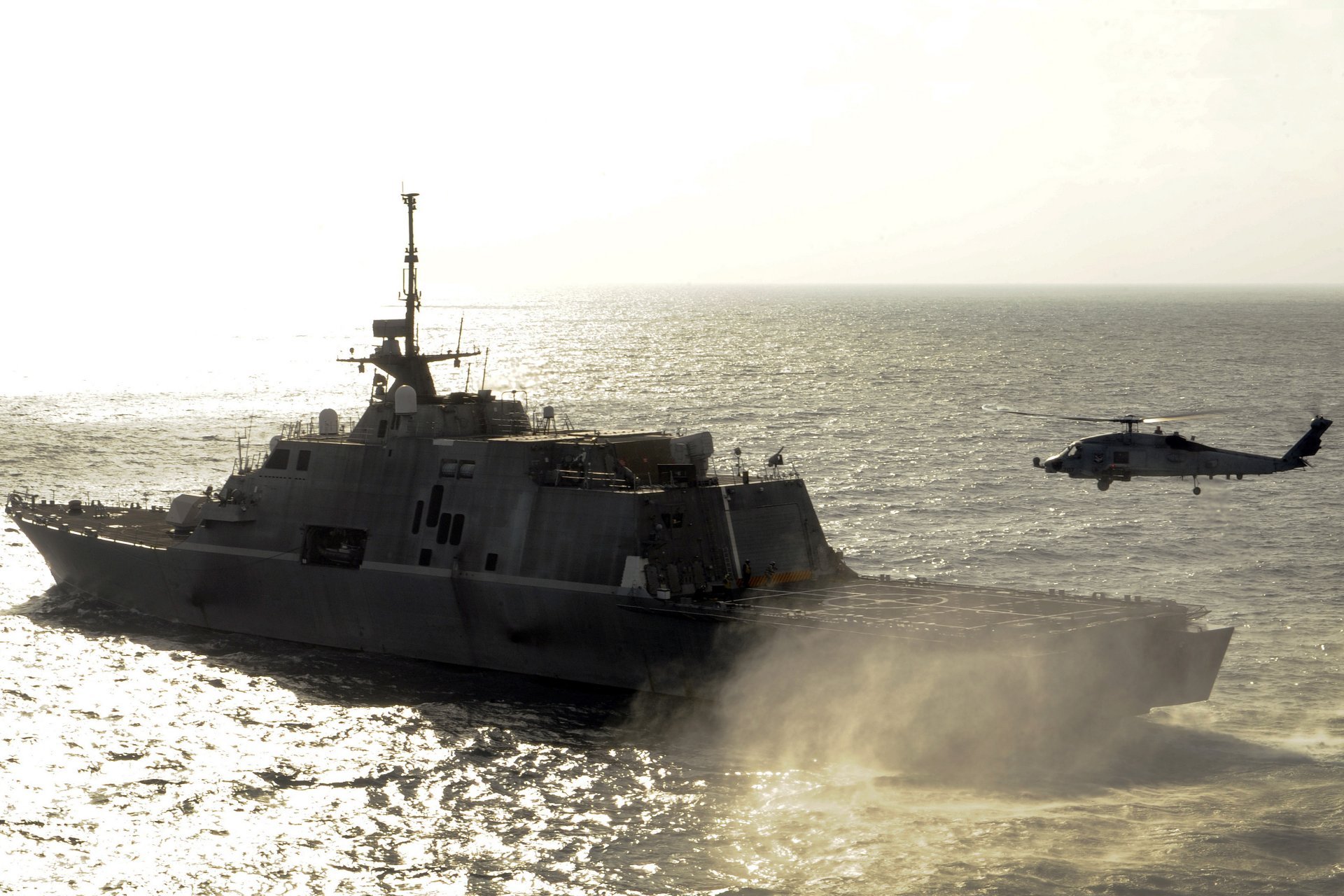      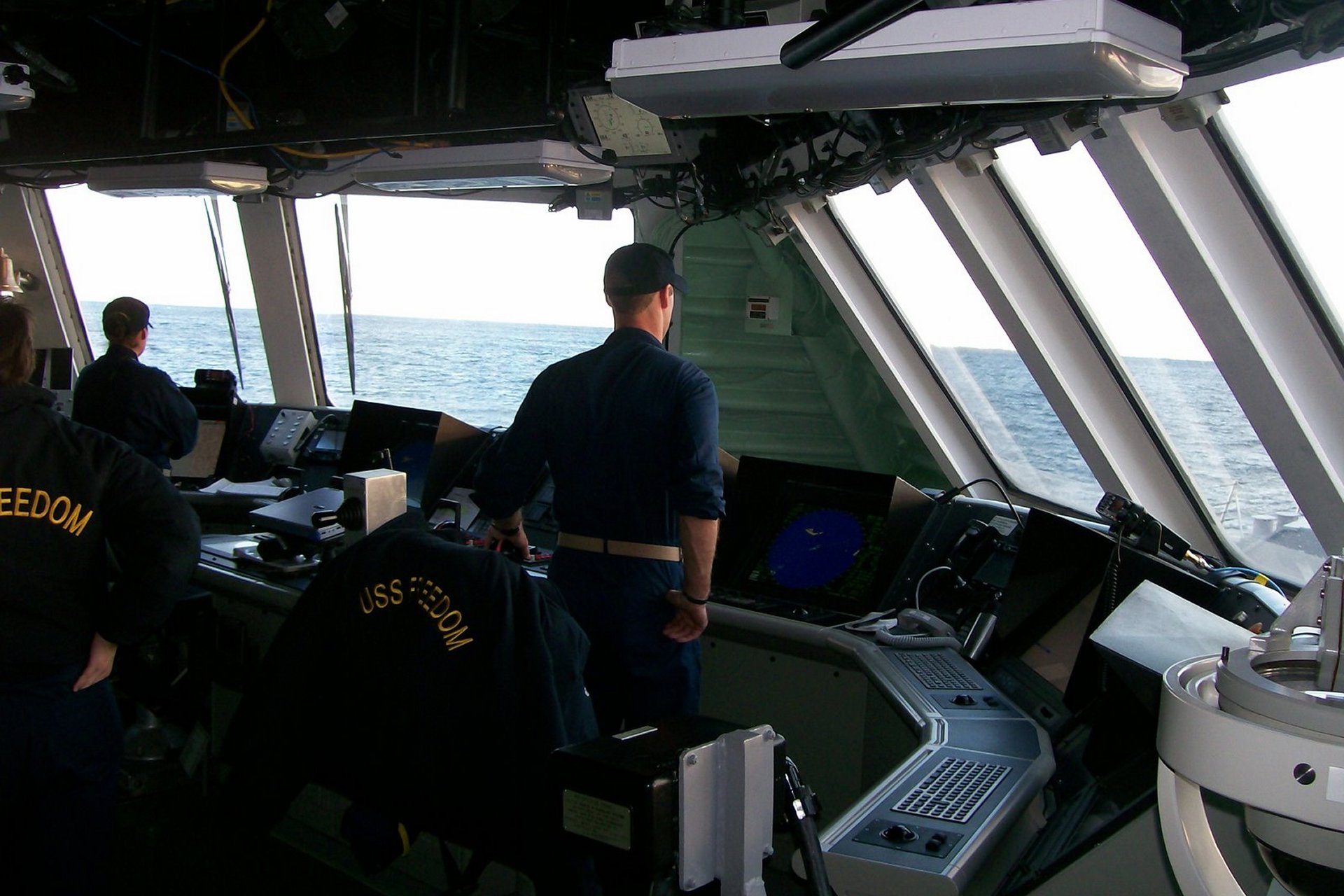    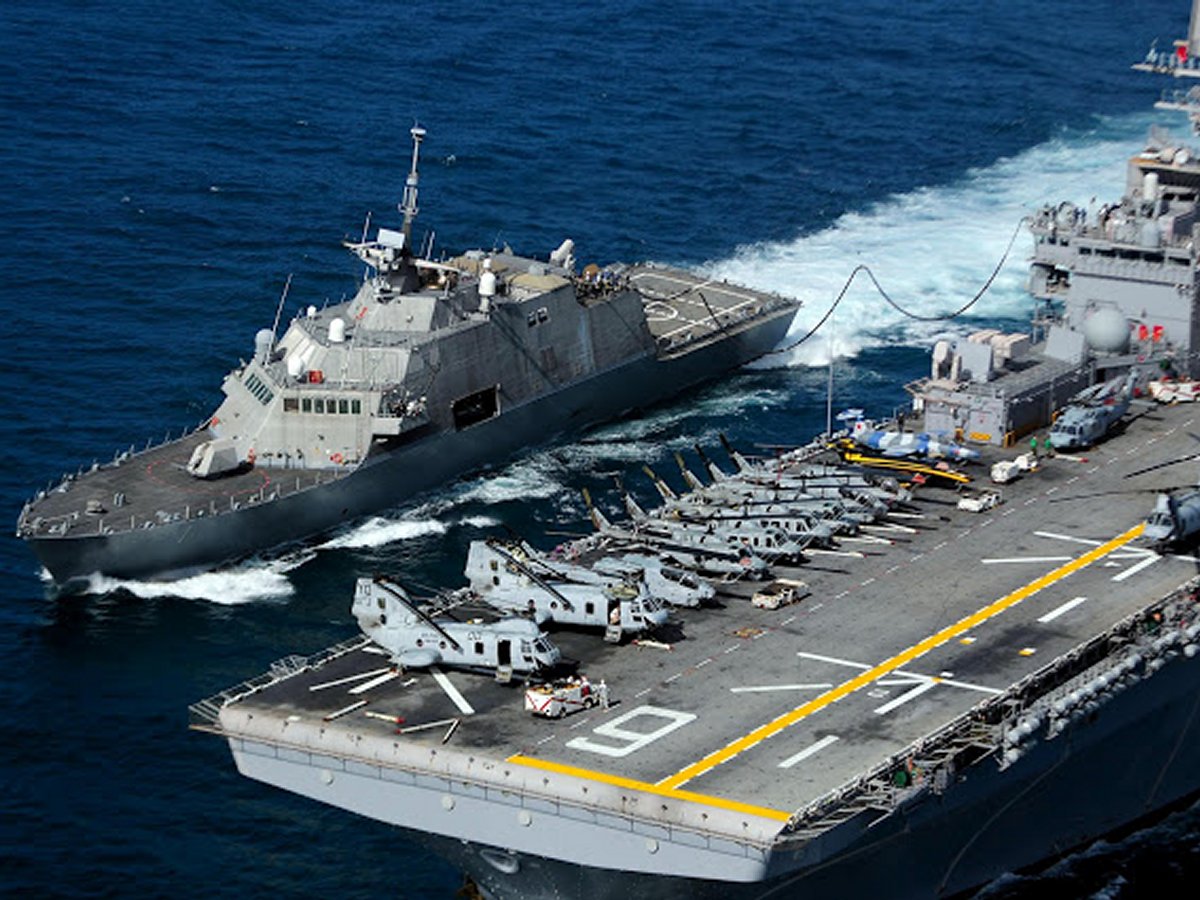  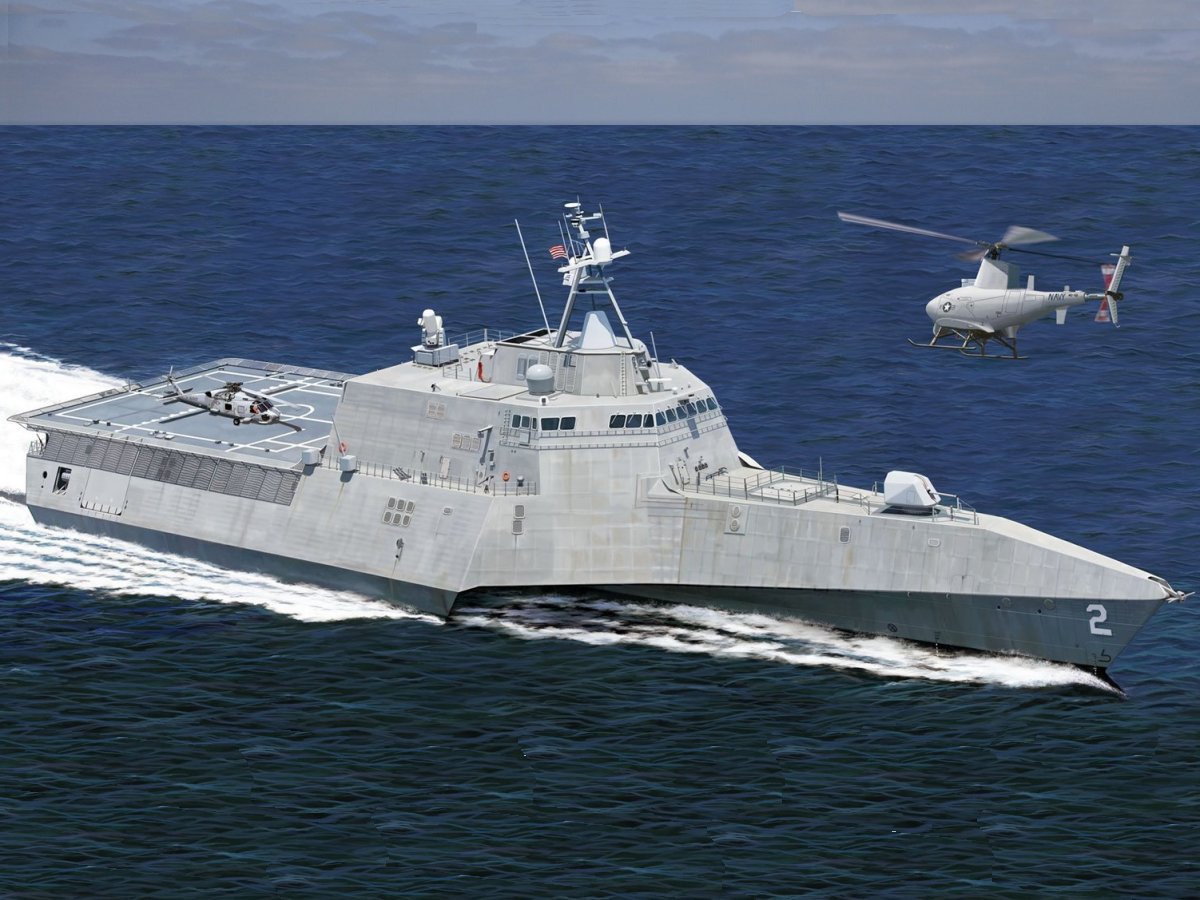 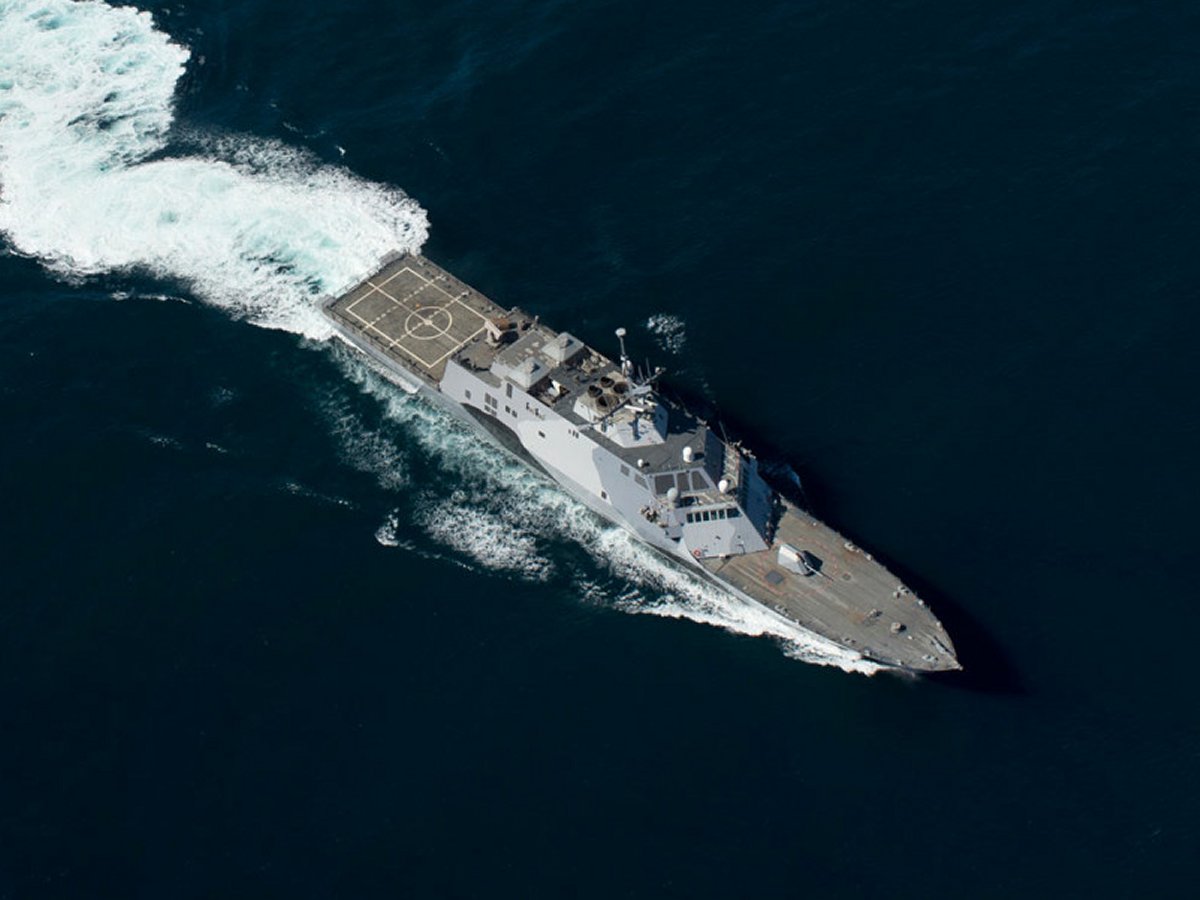 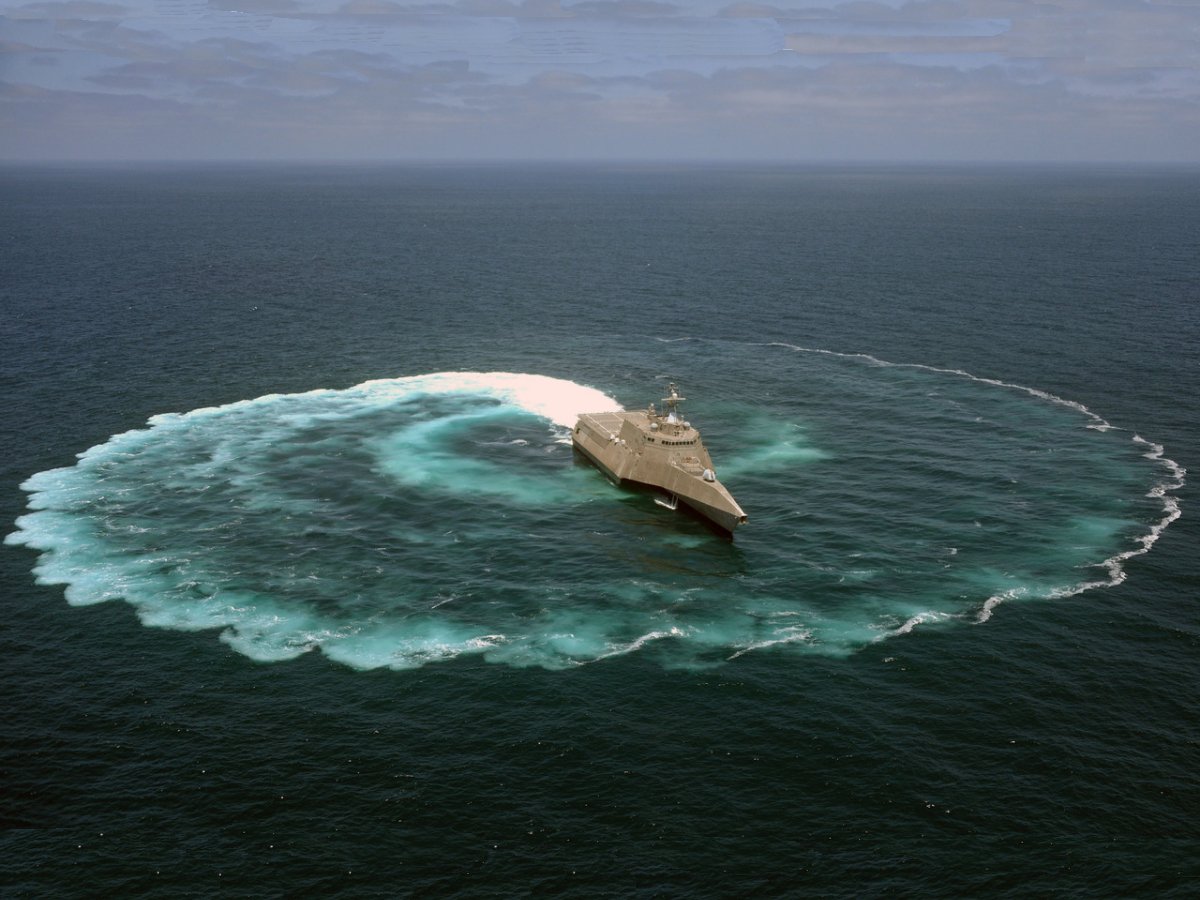 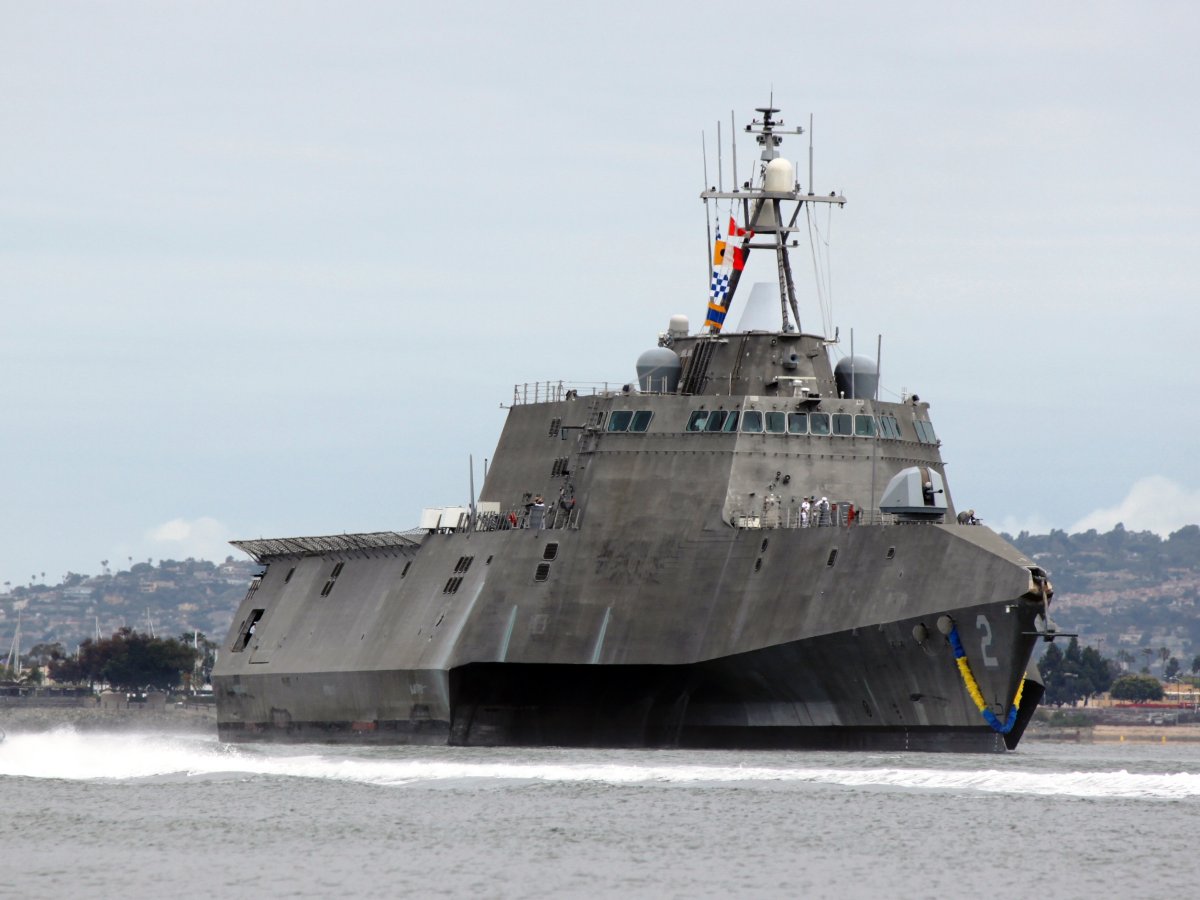 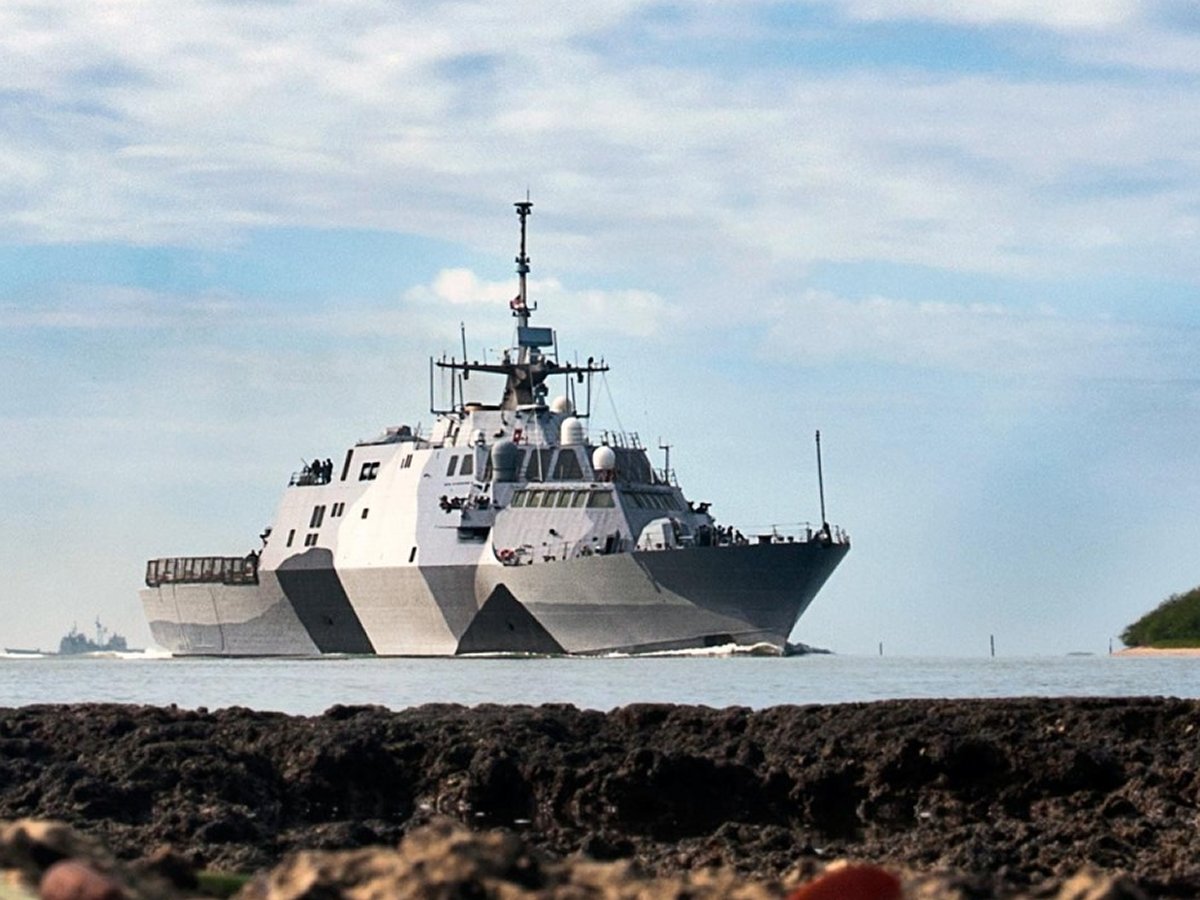 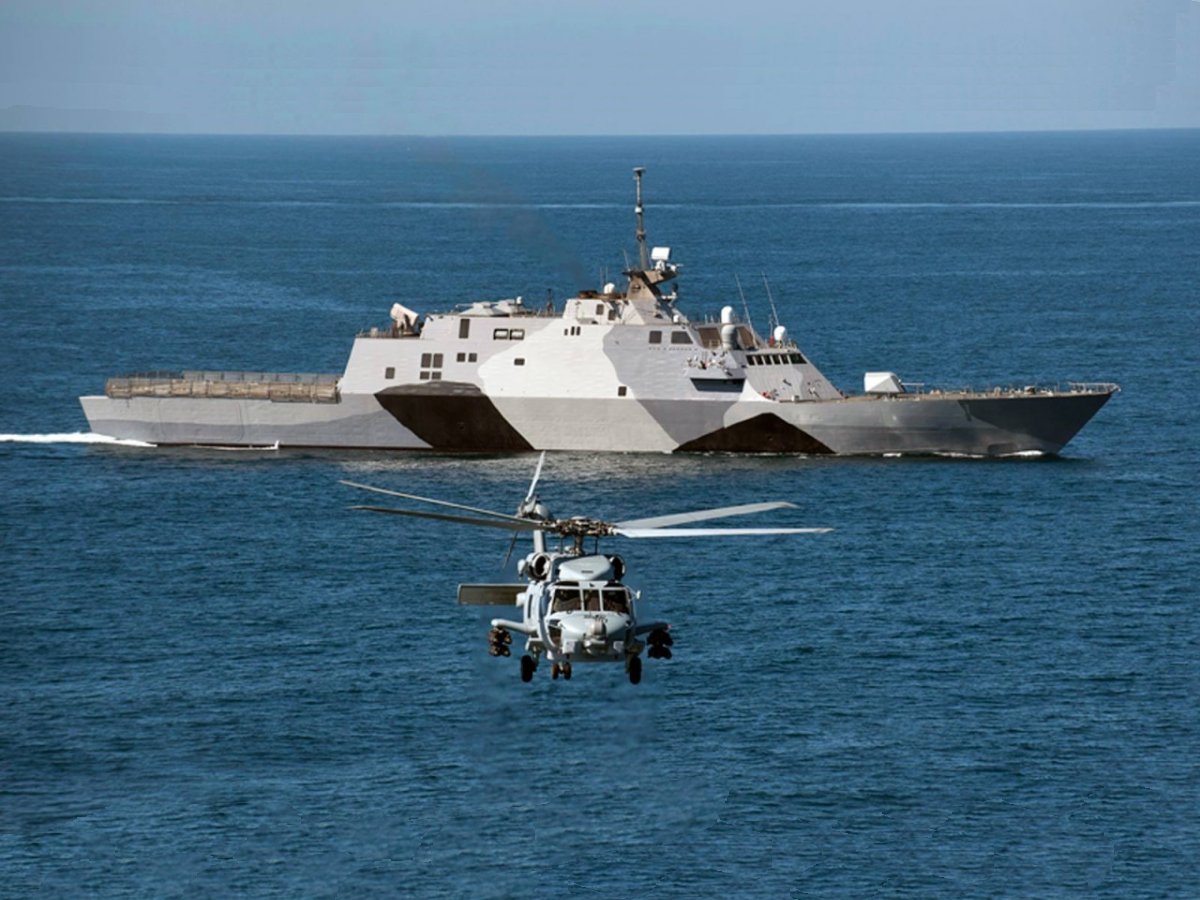  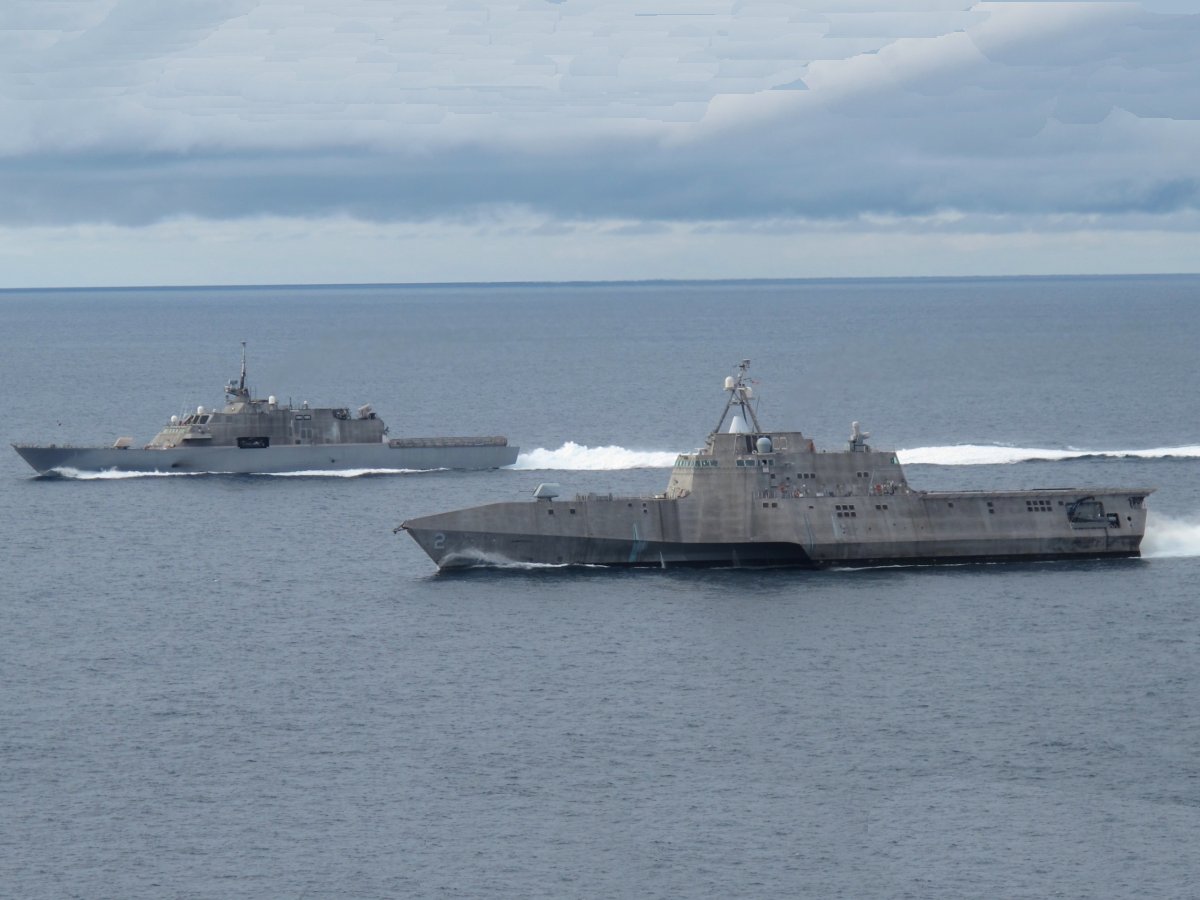 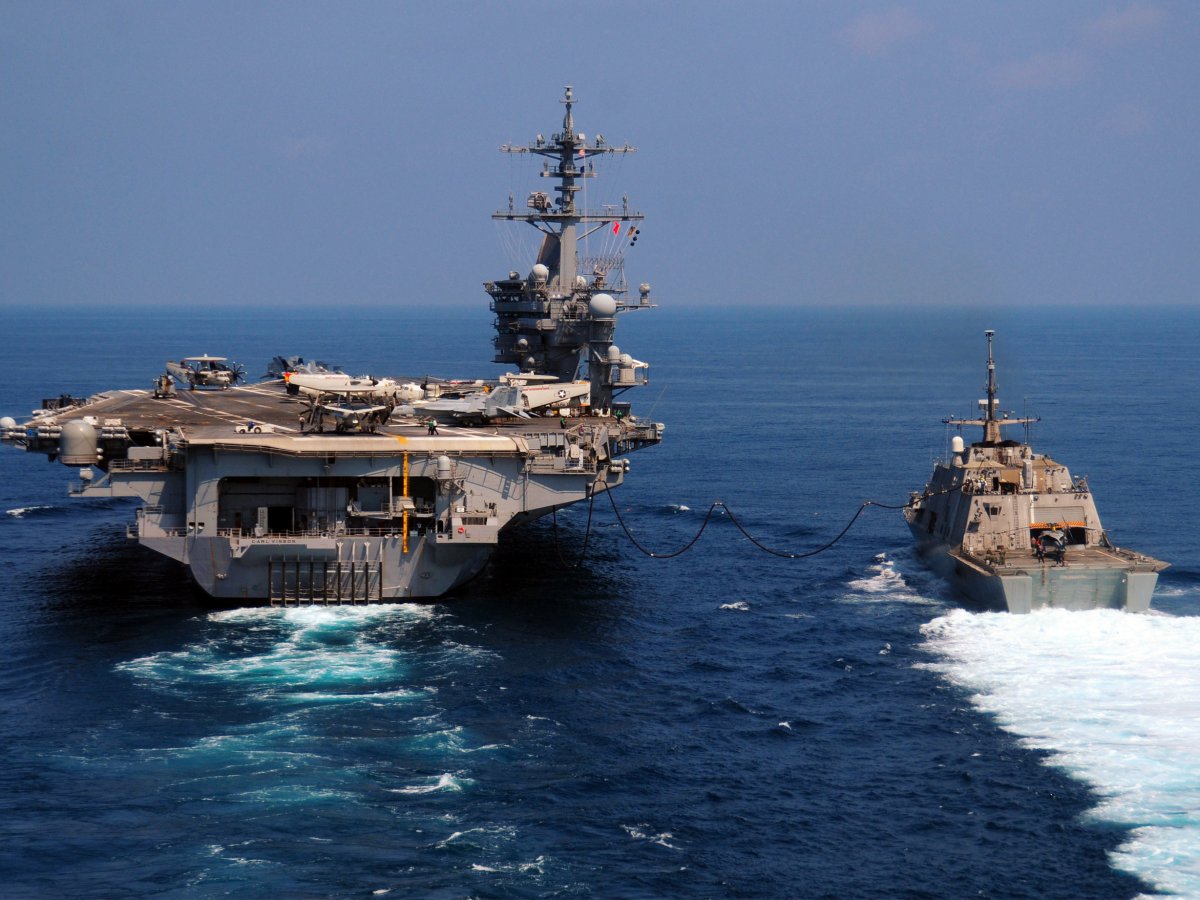 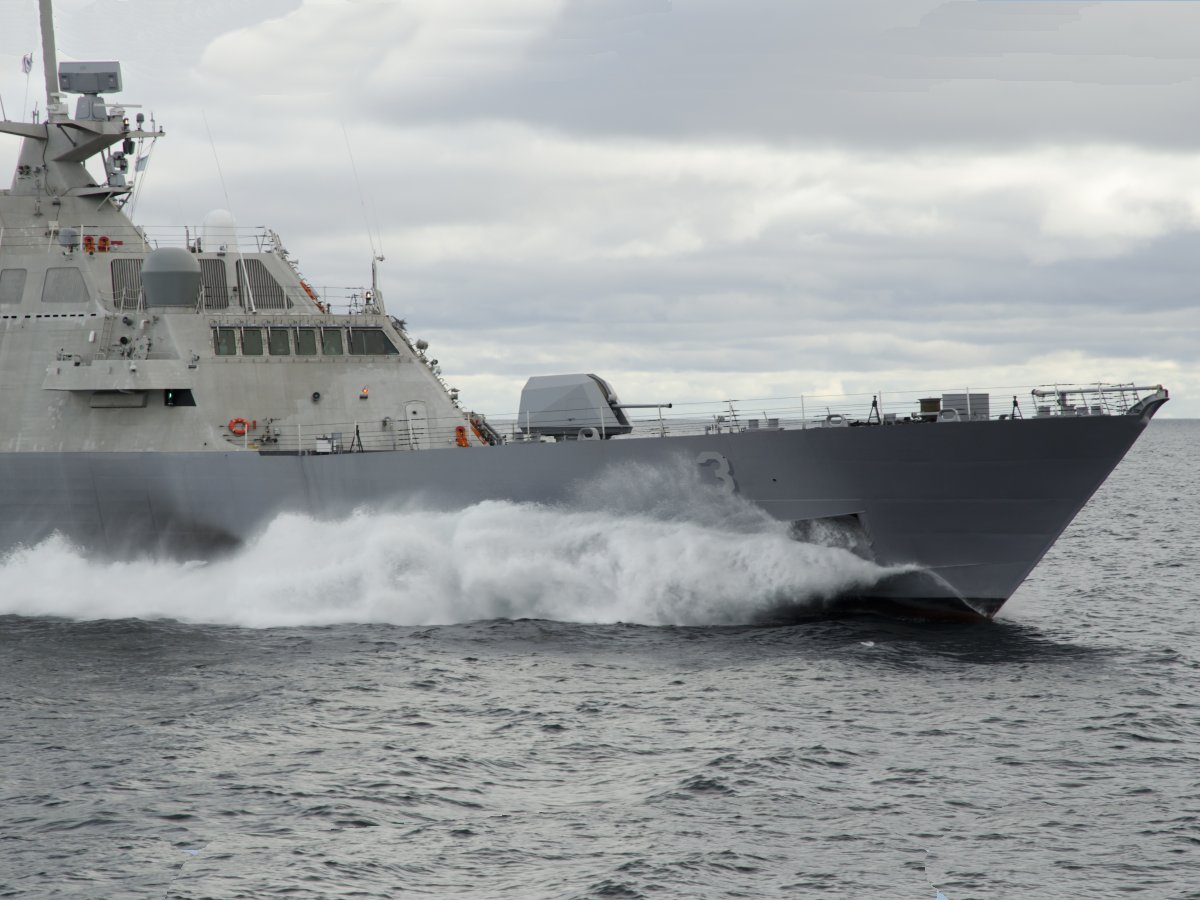 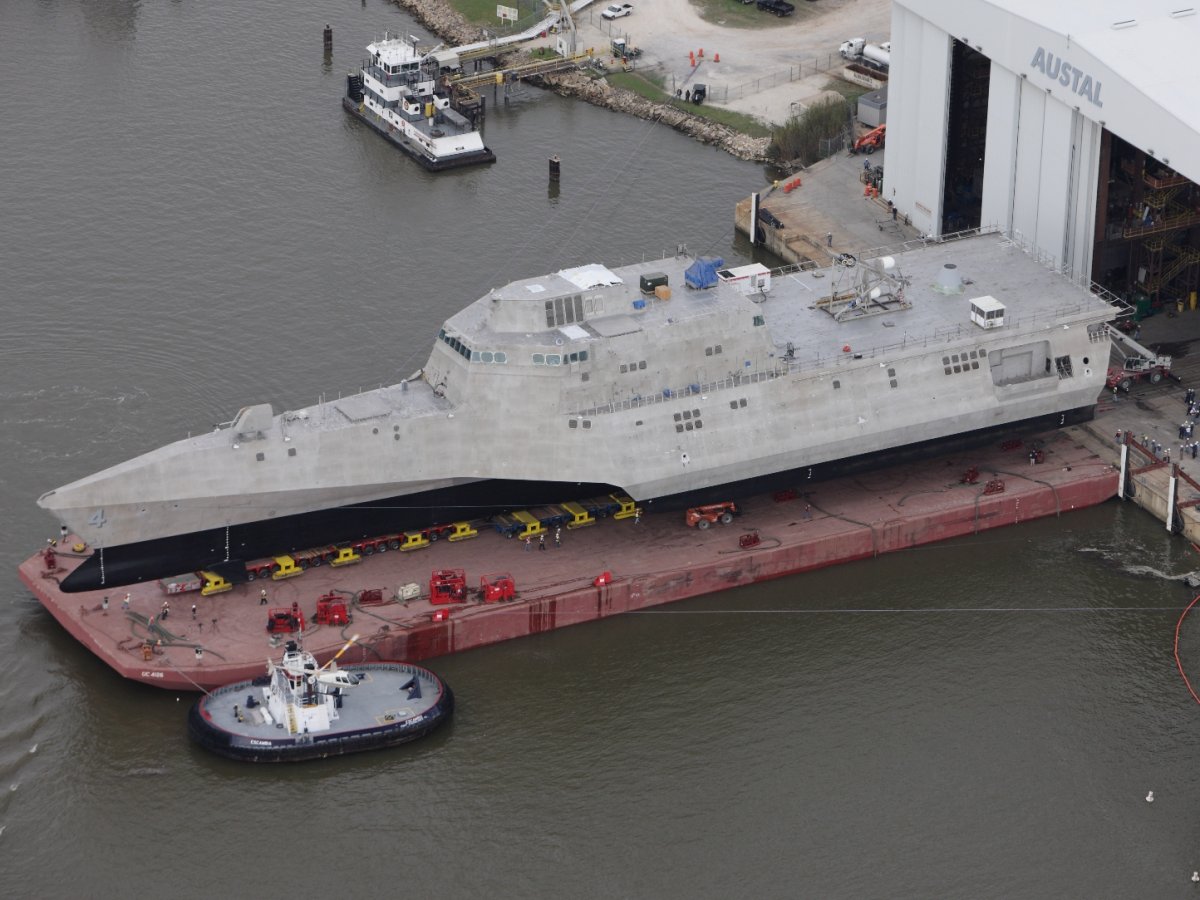 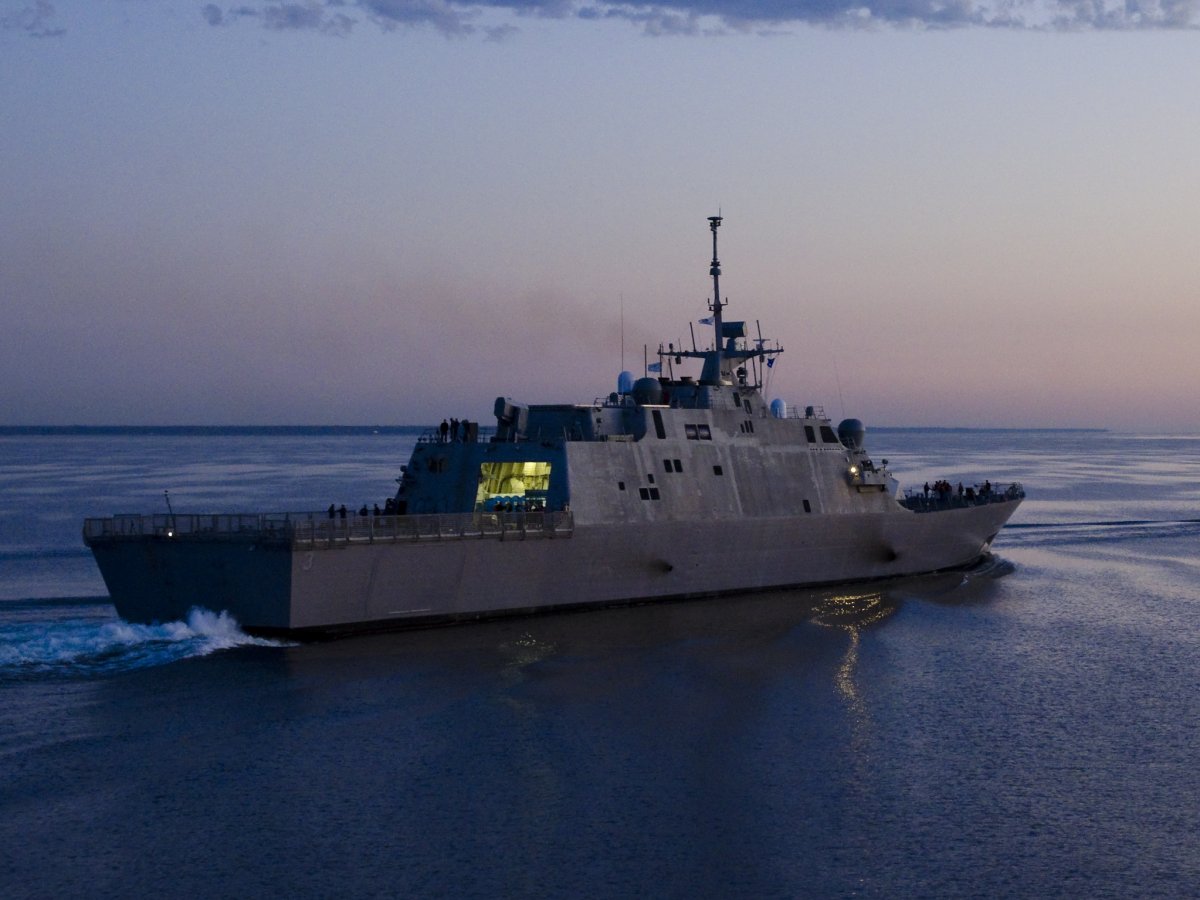 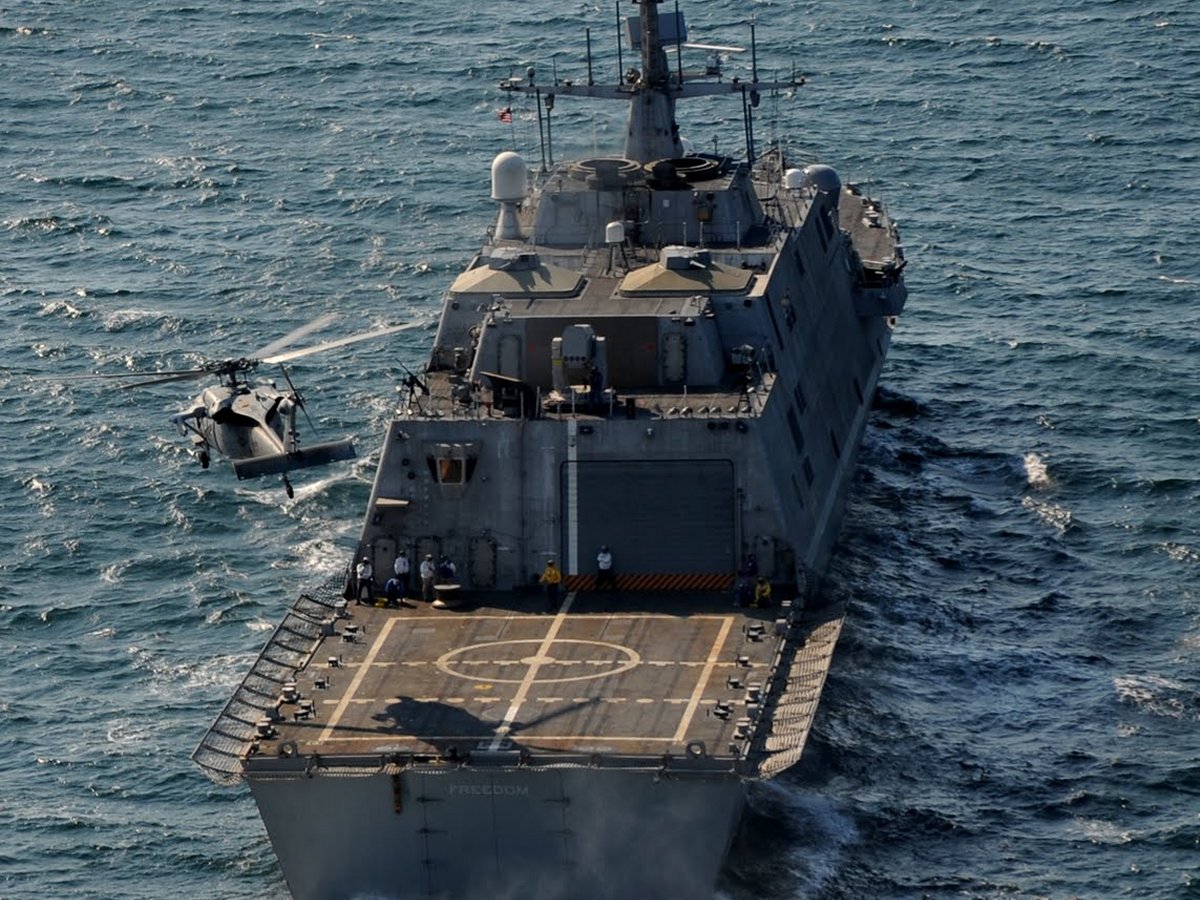  |
World-wide Aircraft Carriers - AEGIS Vessels of the World - The Rising Sea Dragon in Asia - ROCN vs PLAN - 25 Favorite US Navy Pics | ||||
|
Jeff Head is a member of the US Naval Insitute who has many years experience in the power, defense, and computer industries. He currently works for the federal government helping maintain regional infrastructure. He is the author of a self-published military techno-thriller called, "Dragon's Fury," that projects a fictional third world war arising out of current events. Learn more about that series by clicking on the picture of the novel cover below:
 DRAGON'S FURY-World War against America and the West |
||||
 |
View Guestbook |
Sign Guestbook |
 |
|
JEFFHEAD.COM Hit Counter
Jeff Head Military Sites Hit Counter